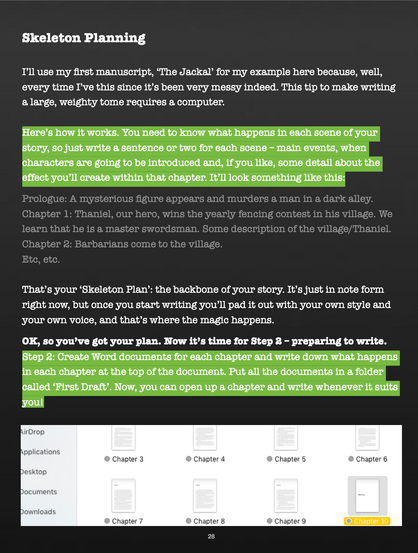'Getting Creative With Our Amazing Language' by Richard D'Souza - a brilliant booklet for Y6 and KS3
- Kate McCallam
- Feb 2, 2022
- 3 min read
Updated: May 4, 2022

This is a fabulous free resource that every English teacher should download and use with their class. It is written for pupils and gives a step by step guide to the history of our language, the process of creative writing and the joy to be found in the written word.
You could either use this as a basis for a creative writing club, dip into it for a specific lesson focus or use as an aide-memoire to remind yourself of the bigger picture on what it takes to be a published writer.
The children we teach need to know that writing a short story or novel and getting that published is within their reach and to go for it!
Richard is currently working on his PhD at The University of Exeter in collaboration with Arvon, who ran the Teachers as Writers project. His study will examine creativity in pupils' creative writing and our assessment of it. He has generously donated 114 pages of his expertise in this incredibly useful resource. I would like to thank him for his valuable contribution.
Take a sneak preview by scrolling below....
.....and click to download here.
Richard's Experience - a tale of two schools with very different approaches to writing
In my first job, when I began teaching writing - a subject previously viewed as pretty boring -with enthusiasm, it electrified the small village community.
I celebrated the creativity of the children's stories, self-published them in a little magazine, and created this small booklet. Some took it home, read chapters, and brought back new stories, and others read from it and then experimented in my writing club.
I knew I was in a position as their teacher to spark some creativity, and had been surprised by the number of responses I got to my writing competitions, my writing lessons, and how many signed up to the club I ran. I knew that I had a unique opportunity to help some of the children get inspired by the potential of their stories to communicate ideas, experiences, and feelings - the club gave many of them their first appreciative audience and exposure to different kinds of writing beyond what they were offered in literacy lessons.
Unfortunately, in my most recent teaching post, the stance on writing was that allowing for creativity would result in unrestrained, uncontrolled writing that would embed poor presentation, spelling, punctuation, and grammar. Scope for such an inspirational or exploratory approach to writing was relegated to off-the-grid SEN intervention work for children who were literally escaping the mainstream writing classroom, feral with resilience to learning the heavily regimented and bland parrot-stories they were being taught to reproduce. Once again, writing showed its potential to transform lives in this setting, as I knew it would - as it had for me. I had my own teacher who enabled my discovery of writing, which continues to inspire me as a writing teacher, researcher, and educationalist today.
My current research demonstrates that I am not alone in seeing value in children's writing, and their potential as creative agents - in fact, multiple studies and a community of academics challenge the status quo of educational policy. My current work brings together some of these voices, synthesising the insights of professional novelists, teachers, and university creative writing tutors to explore paths forward to assessing, and ultimately unlocking, children's creative potentials.























Yorumlar